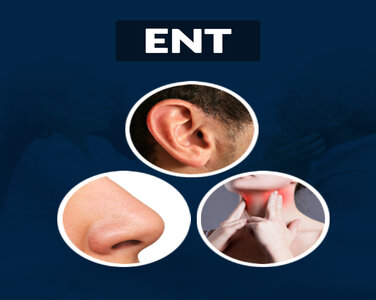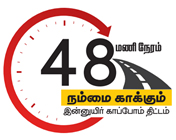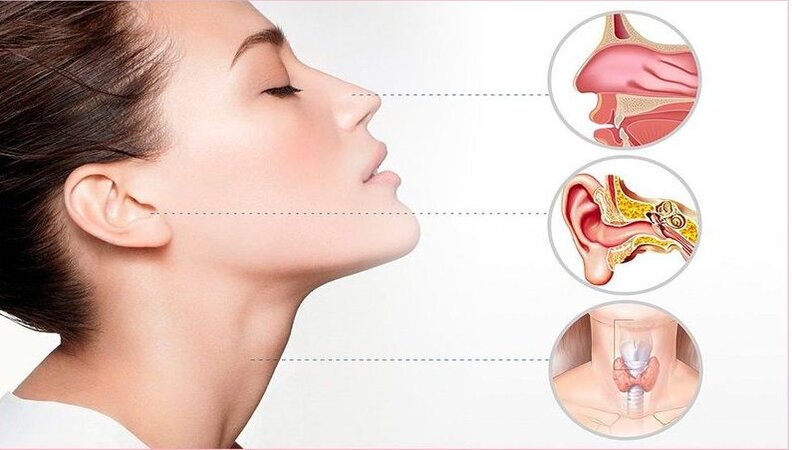Introduction
Hello, I’m Dr. M. Deepanand, ENT specialist (D.L.O.) at Kavan Hospital. I want to tell you how ear, nose, and throat issues—if left untreated—can affect more than just discomfort. Chronic sinusitis, recurrent tonsillitis, persistent nasal congestion, or progressive hearing loss can disturb sleep, breathing, speech, and quality of life.
At Kavan Hospital, we offer full-spectrum ENT care in Dharmapuri and Harur with modern diagnostic tools, minimally invasive endoscopic sinus surgery, microscopic ear surgery, and personalized follow-up. My aim is simple: restore your natural hearing, breathing, and voice function, reduce recurrence, and help you return to daily life with comfort and confidence.
What is ENT Care?
As an ENT specialist, I treat medical and surgical conditions of the ear, nose, and throat (otolaryngology). These organs are deeply connected: nasal congestion can affect sinus drainage, voice or swallowing issues can reflect throat pathology, and inner ear problems can trigger balance or hearing loss. ENT care is about diagnosing these interconnected issues accurately and treating them in a way that restores natural function, prevents long-term damage, and improves your quality of life.
At Kavan Hospital, our ENT services include hearing loss evaluation and management, endoscopic sinus surgery for chronic sinusitis or nasal polyps, microscopic ear surgery (tympanoplasty, ossicle reconstruction, mastoid surgery), tonsillectomy and adenoidectomy, and both medical and surgical allergy management. Whether you are a child with recurrent ear infections or an adult with persistent sinus headaches, we offer tailored care that balances minimally invasive techniques with safety and effectiveness.

- Comprehensive otolaryngology services
- Hearing loss diagnosis and management
- Endoscopic sinus surgery for sinusitis, nasal polyps, and nasal obstruction
- Microscopic ear surgery to preserve hearing and restore anatomy
- Tonsillectomy and adenoidectomy for pediatric ENT issues
When Do ENT Problems Occur?
I often see ENT issues triggered by multiple factors—viral or bacterial infections, environmental allergies (especially in regions like Dharmapuri and Harur), seasonal pollen fluctuations, pollution, and structural abnormalities like a deviated nasal septum, nasal polyps or Eustachian tube dysfunction. Children may present with enlarged tonsils or adenoids, chronic otitis media, or glue ear, while adults more commonly face chronic sinusitis, hearing loss, nasal obstruction, snoring or sleep-disordered breathing, and vocal strain.
A common pattern I observe: a patient in Dharmapuri presents with nasal congestion for months, takes over-the-counter decongestants, occasionally antibiotics, but never undergoes diagnostic nasal endoscopy or imaging. Over time, this evolves into chronic sinusitis, frequent headaches, loss of smell, and even sleep disturbance. Similarly, untreated ear infections in children or adults can progress to chronic perforation, cholesteatoma, or hearing loss. Environmental allergens—especially dust, pollen or pollution—also frequently trigger recurrent sinusitis or allergic rhinitis in our region, compounding the problem.
- ENT problems often emerge from infections, allergies, or anatomical blockages
- Environmental risk factors like dust, pollen, pollution play a big role
- Early symptoms include ear pain, nasal blockage, frequent throat infections, snoring, or hearing loss
- Delayed diagnosis can lead to chronic sinusitis, tympanic membrane damage, or persistent voice disorders
- Children often present with tonsillitis, adenoid hypertrophy, otitis media; adults more with sinusitis or hearing issues
Common ENT Conditions I Treat
In my practice at Kavan Hospital, the most frequent ENT conditions include chronic sinusitis and nasal polyps, hearing loss of both conductive and sensorineural type, recurrent otitis media or glue ear in children, persistent ear discharge, enlarged tonsils/adenoids in children with recurrent throat infections, and obstructive nasal breathing or snoring. Adult patients may also present with voice changes, swallowing difficulties, or sleep-disordered breathing affecting the throat.
Each patient is unique, so I don’t apply a one-size-fits-all model. For sinusitis, I assess whether medical management—antibiotics, corticosteroid nasal sprays, allergy management—will suffice or whether endoscopic sinus surgery is indicated. For hearing loss, I perform detailed audiometry, tympanometry, and microscopic ear examination to decide if intervention (medical, hearing aid recommendation, or microscopic ear surgery) is needed. Children with repeated tonsillitis or adenoid hypertrophy are evaluated for tonsillectomy or adenoidectomy only after careful assessment of risks and benefits.
- Chronic sinusitis, nasal polyps, nasal obstruction
- Hearing loss evaluation and management (audiometry, tympanometry, otoscopy)
- Recurrent ear infections, otitis media with effusion, persistent ear discharge
- Tonsillitis, adenoid hypertrophy, snoring, sleep-disordered breathing
- Voice and swallowing disorders, pediatric ENT issues
How I Diagnose ENT Conditions
Diagnosis in ENT must be systematic and precise. I begin with a detailed medical history—asking about duration of symptoms, prior treatments, allergy history, exposure to pollutants or allergens, sleep quality, and hearing concerns. This is followed by a physical examination: otoscopy, nasal endoscopy, throat inspection, and, when indicated, nasal endoscopy to visualize sinus drainage pathways, and endoscopic examination of nasal polyps or septal deviation.
I always rely on a suite of advanced diagnostic tests: audiometry (pure tone and speech audiometry) to quantify hearing loss, tympanometry to assess middle ear function, CT scans or MRI of the sinuses when surgical intervention is under consideration, and flexible or rigid nasal endoscopy to examine the nasal passages in real time. In some cases, I order allergy testing or vestibular function tests, and voice or swallowing studies when needed. The goal is to understand not only the symptom, but the underlying anatomical or physiological cause. Only then can I design a treatment plan that targets the root problem and not just the symptom.
- Comprehensive medical history (symptom duration, allergy/environmental triggers, prior interventions)
- Otoscopic and nasal endoscopic examination
- Audiometry and tympanometry for hearing and middle ear assessment
- Imaging (CT or MRI) when surgery is considered
- Allergy testing, vestibular function testing, or voice/swallow studies as needed
How ENT Conditions Are Treated
Treatment strategy depends on the diagnosis and severity of your condition. For milder or early cases of sinusitis or allergic rhinitis, medical management with nasal corticosteroid sprays, saline irrigation, allergy control, and antibiotics may be effective. However, if nasal obstruction or sinus infection is chronic or associated with nasal polyps, I recommend endoscopic sinus surgery to restore natural sinus drainage, reduce recurrence, and improve breathing and smell.
In ear surgery, I favor microscopic ear surgery techniques—tympanoplasty to repair eardrum perforations, ossicular chain reconstruction to improve conductive hearing loss, mastoid surgery if required—because microscopic methods allow me to preserve as much of the natural anatomy as possible and maximize post-operative hearing outcomes. Pediatric patients with recurrent tonsillitis or significant adenoid hypertrophy may undergo tonsillectomy and adenoidectomy, provided the benefits outweigh the risks. I also integrate hearing loss management—ranging from hearing aids, medical treatment, or surgical intervention—as part of a holistic, long-term plan.
- Medical therapy first for mild or early disease (nasal sprays, saline irrigation, antibiotics, allergy management)
- Endoscopic sinus surgery for chronic sinusitis or nasal polyps
- Microscopic ear surgery for tympanic membrane repair, ossicular reconstruction, mastoid surgery
- Tonsillectomy and adenoidectomy in selected pediatric cases
- Hearing loss management as part of overall ENT treatment
Post-Surgical Care and Recovery
After surgery—whether endoscopic sinus surgery or microscopic ear surgery—post-operative care is critical. I give patients detailed recovery plans: nasal saline irrigations, avoidance of nose blowing, careful management of nasal crusting, pain control, and sometimes antibiotic or steroid nasal sprays to reduce inflammation. Ear surgery patients must follow ear care instructions strictly—keeping the ear dry, avoiding water ingress, scheduling regular microsuction cleaning, and gradually resuming activities as advised.
I monitor recovery closely with scheduled follow-up visits, beginning with an early visit in the first week to check for complications (bleeding, infection, excessive crusting or discharge), then later follow-ups to assess functional recovery (nasal breathing, hearing improvement, absence of discharge, sense of smell, voice/swallowing comfort). In the region of Dharmapuri and Harur, we give special attention to the outdoor environmental exposures and high dust/pollen load as potential aggravating factors, and often recommend preventive measures such as indoor air quality improvement, allergy control, and regular follow-up to avoid recurrence.
- Nasal saline irrigation, crust management, and avoidance of nose blowing after sinus surgery
- Ear dryness, microsuction cleaning, gradual resumption of water exposure after ear surgery
- Scheduled follow-up visits to detect complications early
- Monitoring of functional recovery: breathing, hearing, absence of discharge
- Preventive advice for dust/allergen exposure, allergy control, and indoor air quality
Importance of Regular ENT Check-ups
Even if you don’t currently have severe symptoms, I strongly recommend routine ENT check-ups. Silent ENT problems—like early hearing loss, mild nasal septal deviation, small nasal polyps, or early sinus inflammation—can evolve slowly without dramatic symptoms. Early detection means simpler solutions and better long-term outcomes.
At Kavan Hospital, preventive ENT care includes periodic hearing screening (especially if you are exposed to noise, or have previous ear infections), nasal endoscopy for patients with recurring congestion or allergy symptoms, and follow-up of allergic rhinitis or sinus disease. Children with recurrent ear infections or adenoid/tonsillar problems are monitored closely, even when symptoms appear to improve, to avoid long-term complications. Lifestyle advice—such as managing indoor air quality, reducing dust exposure, and controlling allergies—also plays a major role in keeping ENT disorders from recurring.
- Early screening for hearing loss and middle ear disease
- Periodic nasal endoscopy for recurrent nasal congestion or allergy symptoms
- Monitoring of children with repeated ear infections or tonsillitis
- Preventive allergy management and indoor environmental advice
- Long-term follow-up to avoid recurrence or progression of disease
Why Choose Me for ENT Care at Kavan Hospital
You might wonder—why come to Kavan Hospital and my ENT practice in Dharmapuri and Harur? First, we bring together surgical expertise and advanced tools: endoscopic sinus surgery, microscopic ear surgery, audiometry and balance assessment tools, fiberoptic and endoscopic nasal/ throat evaluation. We combine these with the personalised care that only a human approach can deliver.
My training in ENT and otolaryngology, my experience in ear surgery, sinus surgery, and pediatric ENT, and my commitment to follow-up care mean I don’t just perform a procedure—I manage your entire path to recovery. At Kavan Hospital, you’ll receive clear explanations, informed consent discussion, realistic expectations, and ongoing care plans tailored to your living environment (including dust exposure, seasonal allergies, and noise risk). Many families in Dharmapuri and Harur trust our ENT services because we deliver outcomes that improve hearing, breathing, speech, sleep, and overall life comfort.
- ENT expertise integrated with modern endoscopic and microscopic tools
- Patient-focused care from diagnosis through recovery
- Safe surgical techniques with minimal invasiveness and faster recovery
- Follow-up tailored to regional environmental risks and allergy exposures
- Trust and reputation as a leading ENT provider in Dharmapuri and Harur
Conclusion
As your ENT specialist, my commitment is to help you and your family breathe better, hear clearly, speak comfortably, and lead a life free from recurrent ENT symptoms. At Kavan Hospital, we aim to provide more than just treatment—we aim for long-term functional recovery, preventive care, and patient confidence in every step of the journey.
If you’re searching for the best ENT doctor in Dharmapuri or Harur, I invite you to visit my clinic at Kavan Hospital. Together, we’ll evaluate your ENT health comprehensively, define a treatment plan that fits your lifestyle and environment, and work toward sustainable recovery and improved wellbeing.
“At Kavan Hospital, we combine advanced ENT care with compassionate expertise, ensuring every patient in Dharmapuri and Harur receives lasting relief, restored function, and healthier living.”
The best ENT specialist is someone who has both advanced medical expertise and genuine concern for patients. At Kavan Hospital, we take pride in providing ENT care that balances precision treatment with personal attention. With my specialization in ENT, I use advanced endoscopic and microscopic techniques to deliver accurate and minimally invasive solutions. Patients in Dharmapuri and Harur trust us because we focus not just on curing the condition but also on ensuring long-term functional recovery.
When looking for the best ENT doctor, patients should consider qualifications, clinical experience, and the hospital’s facilities. At Kavan Hospital, we provide a complete setup for ear, nose, and throat care, including diagnostic tools, endoscopy, and surgical facilities under one roof. My approach has always been to explain conditions clearly, offer customized treatments, and ensure that every patient feels supported throughout their recovery. This commitment to quality makes us one of the most trusted ENT care providers in the region.
There is no single medicine that suits all ENT problems. At Kavan Hospital, we prescribe medicines based on the exact condition after proper evaluation. For example, antibiotics may be needed for ear or throat infections, while nasal sprays and antihistamines work better for allergies. In some cases, surgery is a better long-term solution. Our focus is always on safe, evidence-based prescriptions and avoiding unnecessary medication, which helps patients recover faster and stay healthier.
ENT stands for Ear, Nose, and Throat, while the medical specialty is called Otorhinolaryngology. At Kavan Hospital, our ENT department is dedicated to treating conditions related to these three vital areas, including hearing loss, balance problems, sinus diseases, throat infections, and sleep-related breathing issues. We combine modern technology with compassionate care so patients get holistic treatment for every ENT-related concern.
A throat doctor is an ENT specialist or otorhinolaryngologist. At Kavan Hospital, I handle a wide range of throat-related conditions such as tonsillitis, adenoid enlargement, chronic throat pain, and voice disorders. Since many patients, especially teachers, singers, and speakers, depend on their voices, our treatments aim not only to cure the illness but also to preserve vocal health. Patients choose Kavan Hospital because we provide both medical and surgical solutions with long-term results in mind.
Yes, an ENT doctor is the right specialist for sinus infections. At Kavan Hospital, we begin with detailed evaluations using nasal endoscopy and imaging. Depending on the severity, treatment may include antibiotics, anti-allergy medication, or procedures like endoscopic sinus surgery. Our goal is to relieve patients from frequent sinus infections, restore easy breathing, and prevent future recurrences. With modern equipment and personalized care, we ensure safe and effective recovery for every sinus patient.






